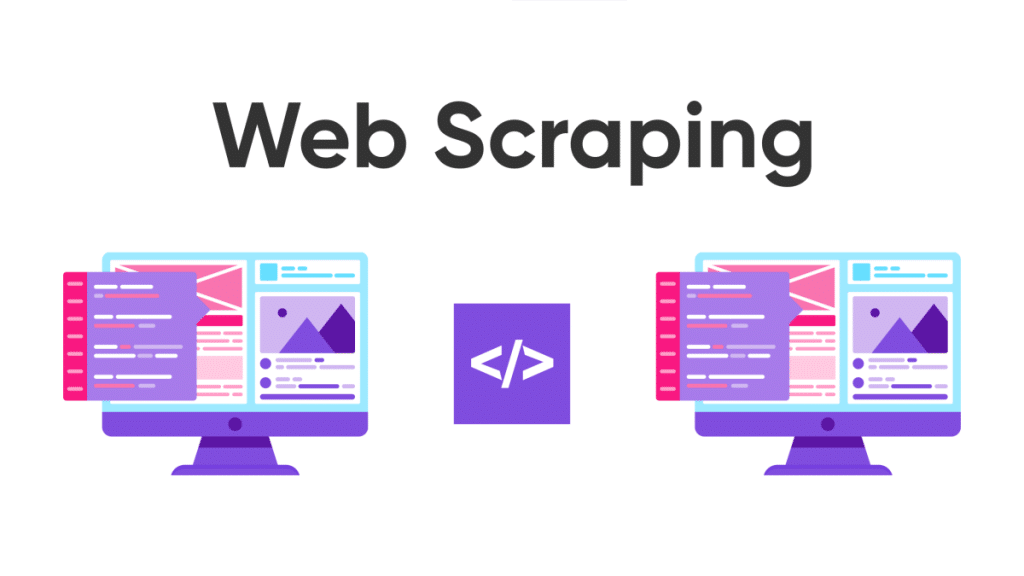Web scraping has now become highly important for both businesses and individuals seeking to retrieve online data. This insane demand for data collection also increases the use of anti-scraping techniques to prevent bot access. While getting around such anti-scraping measures seems challenging, following some techniques and strategies can be helpful in performing large-scale scraping.
In this post, we’ll cover a set of anti-scraping techniques and ways of overcoming them, in addition to covering proxies suitable for large-scale scraping.
Main Anti-Scraping Techniques
Websites use anti-scraping techniques to protect their content from misuse and maintain user experience. These anti-scraping measures help sites stop scraping bots and give access to the desired content. This section will show some of the main anti-scraping techniques that websites use nowadays:
IP Blocks
IP blocking or banning is the most common technique used for stopping scraping bots from accessing site content. It is triggered when the server receives too many requests from a single IP address to access the required data. This, as a result, either bans the IP completely or limits its access to break down the scraping process.
Honeypot Traps
Some website administrators set honeypot traps on pages to catch scrapers and increase their security. This trap uses false information to trick a scraper and stop it from getting the actual data.
The traps can be links that are invisible to people, but scrapers can see them. If a scraping bot attempts to get the content of a honeypot trap, it enters an endless loop of requests and fails to collect further data.
CAPTCHAs
CAPTCHAs (Completely Automated Public Turing tests to tell Computers and Humans Apart) are popular security measures used to identify bots and restrict their access to websites. This test separates humans from bots by showing pictures or logical problems that human beings find easier to solve than scrapers.
Sites show CAPTCHA every time it detects something suspicious with the current user. A successful test allows the user to access the site, whereas a failure to pass will direct the user to another CAPTCHA test.
Rate Limiting
Rate limiting is an approach that websites follow to impose a limited number of actions a user can perform from one IP address. The limits are implemented to control the number of operations performed within a period of time or the amount of data you use.
How to Overcome Anti-Scraping Measures
Data scraping becomes challenging at times, but there are some approaches that you can follow to overcome anti-scraping measures. Some of them are as follows:
Utilize CAPTCHA-Solving Services
To scrape data successfully while getting around CAPTCHAs, you need to utilize CAPTCHA-solving services. These services are helpful in passing the tests with great ease. However, it is better to implement them first to solve tests served by your target websites or pages to measure their effectiveness.
Go for IP Rotation
Bypassing anti-scraping measures is also possible through rotating IP addresses. Sending too many requests from one IP address to the server may lead to a permanent ban. With proxy rotation, you can appear as many different users, which minimizes the chances of getting blocked.
Avoid Honeypot Detection
Honeypot traps can be avoided in a number of ways. Don’t use public networks, as honeypot traps can be set up on shared ones. Furthermore, skip hidden links and use headless browsers for seamless data scraping.
Best Proxies for Large-Scale and Anonymous Web Scraping
In general, here are the three main proxy types for large-scale and anonymous web scraping:
Dedicated Datacenter Proxies
Dedicated datacenter proxies are a type of datacenter proxies that use IPs owned and managed by data centers. These proxies don’t depend on ISPs and send user traffic through the data center’s network infrastructure without getting linked to a single place.
Due to this fact, dedicated proxy servers provide users with complete anonymity and private IP authentication. In all, dedicated proxy servers are a preferred choice for users to scrape lots of data in a cost-effective manner.
Residential Proxies
Residential proxies are known for sending Internet traffic through residential IPs, which are linked to a physical address, similar to a home address. These proxies have thousands of IP addresses in several locations across the globe and are more difficult to blacklist than other proxy servers. This makes it an ideal choice for large-scale scraping.
Mobile Proxies
A mobile proxy is another type of proxy server that works by sending Internet traffic through a mobile device with a cellular data connection rather than a traditional server. This proxy allows for dynamic IP addresses that keep on changing to make it look as if the user is connected to the Web via a mobile network.
Mobile proxies enable users to get around anti-scraping mechanisms and collect copious amounts of data without getting detected. However, using these proxies can cost them a lot.
Summary
To conclude, performing large-scale scraping is something quite important for businesses nowadays. While many website owners implement anti-scraping mechanisms that are difficult to bypass, following the above-mentioned strategies with the discussed proxies can help you overcome these measures and collect huge amounts of data successfully.

